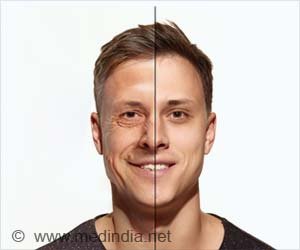If You Look Older Than You Should, You Should be Concerned

Results revealed that participants who looked five years younger than their actual age had better thinking skills.
They were also up to a quarter less likely to have medical problems like cataracts.
“In other words, if you seem younger than you are, your organ systems, body, and mind are likely to reflect this,” says lead author Professor Tamar Nijsten of Erasmus University Medical Center, Rotterdam, the Netherlands.
Advertisement
“We carefully explored the link between looking young and different prevalent age-related health concerns and discovered that youthful appearances are connected with lower systemic aging indicators.”
“This is not a definitive study, but it is perhaps the best study thus far offering evidence that perceived age also reflects internal aging,” Professor Nijsten noted.
“The study reveals that something is happening, most likely on a molecular level and beyond the normal lifestyle factors such as UV exposure or smoking,” says the study’s lead author.
Researchers collected photographs of 2,679 people who were without makeup or jewelry, shot from the front and side. The average age of the participants was 66.
An independent panel of 27 people estimated each person’s age solely based on their appearance.
Each subject was assigned a perceived age score, which was derived by subtracting their actual age from their anticipated age.
Someone who appears seven years younger than their biological age, for example, would receive a score of seven.
The Higher the Score, the Younger the Individual Appears
Experts examined their lifestyle and health data, such as weight, smoking habits, and health conditions, after estimating their ages and computing their scores.
The study’s findings, published in the British Journal of Dermatology, found that people who looked five years younger than their actual age fared better on cognitive tests.
The cohort was 15% less likely to have a chronic obstructive pulmonary disease (lung disorders that cause breathing difficulties) and 24% less likely to have osteoporosis.
Younger-looking people were also 16% less likely to require cataract surgery and 24% less likely to suffer from age-related hearing loss.
The scientists saw that people with the highest age score were mostly men (61%), were less likely to smoke, and had the greatest BMI, which they attributed to the ‘filler effect of facial fat.’
Researchers stated their findings, purely based on observational evidence, support the idea of doctors using how old someone looks as a ‘diagnostic indication.’
The study did not investigate the reasons for this finding.
However, the researchers believe that the biological processes that cause the face to look oldersuch as loss of fat and the development of wrinklesare also responsible for changes in tissue and bone density, which are associated with health concerns.
The researchers highlighted that the subjects in the study were all European, so more research is needed to see if the findings apply to other populations.
Reference :
- Younger facial looks are associate with a lower likelihood of several age-related morbidities in the middle-aged to elderly – (https:academic.oup.com/bjd/advance-article/doi/10.1093/bjd/ljac100/6979846)
Source: Medindia
Source link
#Older #Concerned



